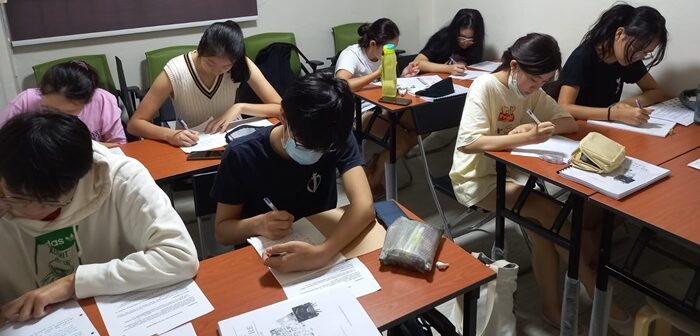Singapore’s education system is renowned for its quality and rigor, emphasizing academic excellence from an early age. For many Singaporean students, Junior College (JC) A Levels represents a critical step toward their academic journey. However, as students prepare for this milestone, they often grapple with the question: Is tuition still necessary at the JC A Level in Singapore? With a well-developed education system and abundant resources, is tuition truly warranted? In this article, we will explore the factors that lead students to seek tuition, the potential advantages and disadvantages, and whether it remains an essential component at the A Levels .
The Educational Landscape in Singapore
Singapore’s commitment to education is evident in its well-structured educational framework. At JC A Level, students typically benefit from highly qualified teachers, comprehensive study materials, and a meticulously designed curriculum. The Ministry of Education (MOE) has made substantial investments to ensure that students receive a high-quality education that equips them for A Level examinations.
However, despite these extensive resources, many students and parents opt for tuition outside of regular school hours. This raises questions: Why do students turn to tuition, and is it genuinely necessary?
Competition and Pressure
Intense competition and academic pressure are among the primary factors driving students toward tuition in Singapore. A Levels play a pivotal role in determining university admissions and future career prospects. Consequently, students and their parents often believe that seeking tuition can provide a competitive edge.
Tuition centres and private tutors frequently market themselves as solutions to this academic pressure. They promise personalized attention and additional practice, which can boost a student’s confidence and performance. “Most of the students that attend our classes are trying to secure the A grades so that they can effectively compete for admissions into the top universities and courses,” says Mr. Kelvin Hong, Chief Tutor at both The Economics Tutor, an IB and JC economics tuition centre as well as Ace GP Tuition, a General Paper tuition outfit.
The intense competition for university admissions, especially in highly sought-after courses like Law, Medicine, Computer Science, and Business, is certainly a very significant motivating factor that often leads students to seek tuition. Given the fierce competition for admission into these coveted courses, students often turn to tuition as a means to enhance their chances of success. It is no wonder why the Ministry of Education has tweaked the university admission A Level scoring system to reduce the stress and pressure with changes in effect from 2026 onwards. Nonetheless, competition will remain stiff and thus the demand for tuition is likely to remain high.
Reinforcement of Concepts
Despite the dedication of JC teachers, some students may struggle with specific subjects or concepts. Tuition can offer additional support by providing alternative explanations, extra practice, and a fresh perspective on challenging topics. For students grappling with certain subjects, this reinforcement proves invaluable. It must be remembered that the JC years are a very short two years that whizz past very quickly and students are expected to master at least 6 subjects, handle Project Work and do well for Co-Curricular Activities as well. With so much at stake, it is no wonder why JC tutors are hot in demand.
Customized Learning
Tuition facilitates personalized and tailored learning experiences. Private tutors can adapt their teaching methods to align with a student’s learning style and pace, a challenge often encountered in crowded classrooms. This individualized attention helps students grasp difficult concepts more effectively.
Exam Preparation
Singapore’s A Level examinations are renowned for their difficulty, increasing the pressure to perform well. Tuition providers frequently offer specialized courses and exam preparation strategies that focus on the specific demands of the A Level syllabus. Such support can be particularly helpful in navigating the intricacies of these examinations and achieving desired results. The personalized attention and additional practice contribute to a greater sense of readiness and capability, reducing anxiety and Drawbacks of Tuition
Cost
One of the most significant drawbacks of tuition is the financial burden it imposes. Private tutors and tuition centers can be costly, adding to the already substantial expenses of A Level education.
Time Commitment
Tuition sessions demand additional time beyond regular school hours. This can lead to busy, exhausting schedules for students, leaving them with limited time for extracurricular activities or relaxation.
Over-reliance
Over-reliance on tuition is another concern. Some students may become excessively dependent on external support, neglecting their own independent study and problem-solving skills. This overreliance can hinder their ability to think critically and learn autonomously.
Is Tuition Still Necessary?
The necessity of tuition at the JC A Level level in Singapore is a multifaceted question. While tuition can offer several benefits, it is not universally required or suitable for every student. Several factors should be considered:
– Student’s Needs
The necessity of tuition varies from student to student, subject to subject. Some may genuinely benefit from the extra support and individualized attention that tuition provides, while others may excel without it. Parents and students should assess their unique needs and circumstances.
– Quality of School Education
The quality of education provided by the JC itself plays a pivotal role. Some JCs boast highly qualified teachers, robust support systems, and comprehensive resources, which can reduce the need for external tuition. In such cases, students may find that school alone suffices to meet their academic goals.
– Balance and Well-being
The overall well-being of students should also be a consideration. An overly packed schedule comprising school, tuition, and other commitments can lead to burnout and stress. Striking a healthy balance between academic pursuits and personal life is crucial for long-term success and happiness.
– Cost-Benefit Analysis
Parents and students must conduct a cost-benefit analysis. Tuition can be expensive, and it is imperative to assess whether the potential benefits, such as improved
Conclusion
The question of whether tuition is still necessary at the JC A Level level in Singapore is multifaceted. While tuition can offer numerous advantages, its necessity varies from student to student and is influenced by factors such as the quality of school education, balance, and overall well-being. Parents and students should carefully weigh the potential benefits against drawbacks and make informed decisions that align with their unique circumstances.
Moreover, the intense competition for university admissions, continues to drive students toward seeking additional educational support. Tuition can indeed play a crucial role in preparing students for the stringent selection processes of these programs, but it should be approached thoughtfully, considering both academic goals and personal well-being. Ultimately, education in Singapore should prioritize not only academic excellence but also holistic development and a healthy life balance.




